Welsh authors are using storytelling to make the climate crisis more emotionally powerful, but can this make readers more aware of the need for action?
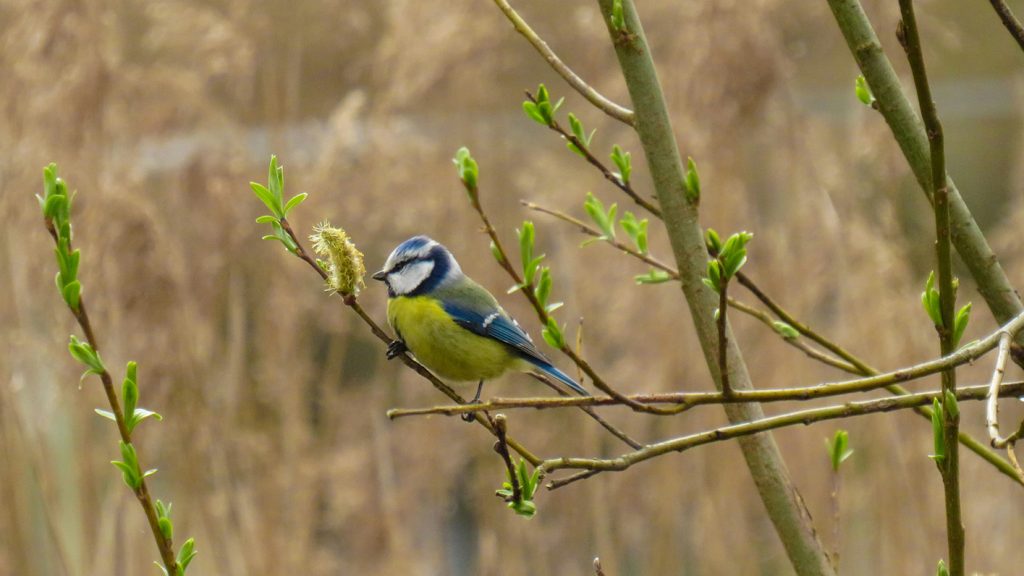
Jon Gower, 65, an author from Llanelli, began bird watching as a teenager. Fifty years later he says the bird life is visibly different.
In his upcoming book, Birdland: A Journey Around Britain on the Wing, Gower revisits his old birdwatching spots, witnessing first-hand the estimated 73 million songbirds that have been lost to the climate crisis. “The bird life was completely different. The first thing we saw was a little egret, in the 1970s, that would’ve been a red letter day,” he recalls.
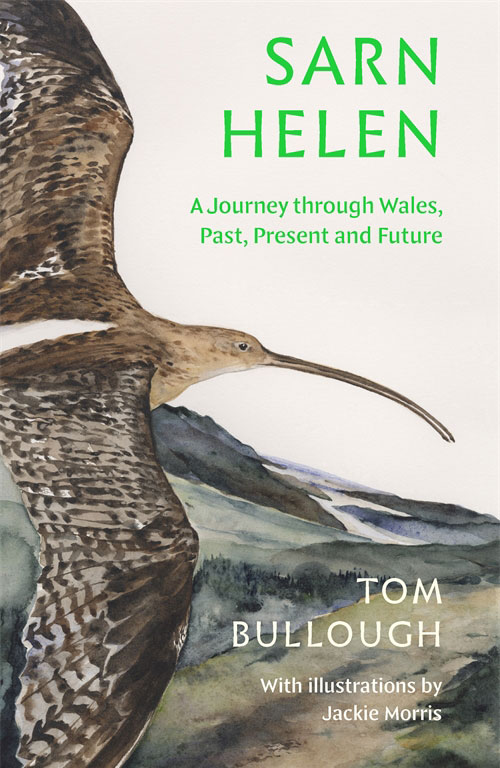
Gower was inspired to write this book after attending the launch of Tom Bullough’s book, Sarn Helen, which explores the changing coastal landscape along an ancient Roman road stretching from the south to the north of Wales.
The book calls for more sustainable living in the face of climate change. Sarn Helen won Welsh Book of the Year in 2024 for its blend of storytelling and research.
After attending this launch, Gower described trying to process the effect of listening to Bullough’s words in person. He said the way this book was structured: combining interviews with scientists and a personal travel log, made the content more “palatable” for readers.
Sarn Helen, the Book of the Year 2024
Tom Bullough explains more about Sarn Helen in this video, posted by Literature Wales:
In a speech at the Senedd in October, Huw Irranca Davies, the deputy first minister, connected the damages of flooding and coastal erosion to the impact on communities.
He said: “We know it is not possible to stop all coastal erosion or all flooding, but the Welsh Government is taking steps to reduce the consequences and help create more resilient communities right across Wales.”
This year, the Welsh government has provided more than £75 million to flood risk management authorities. Gower sees these efforts as integral to shaping the work of Welsh authors. He says this will, “Indirectly feed into the art Welsh authors will be making in the next few years.”
Rooted in nature
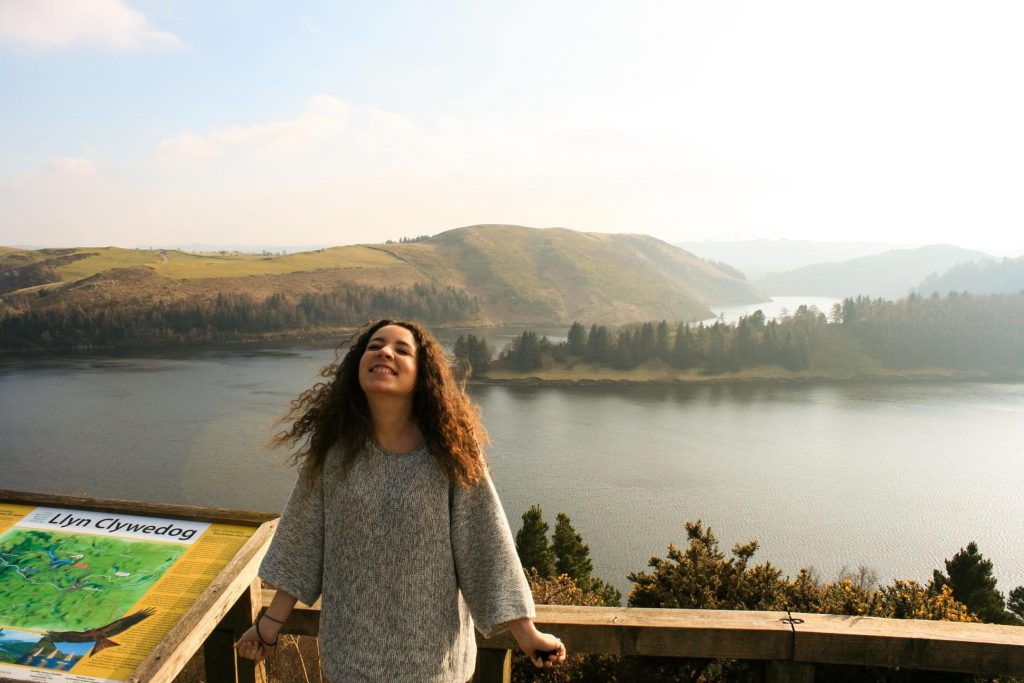
Poet and writer, Taylor Edmonds, grew up in Barry, a coastal town in Wales. She became worried by flood maps from Natural Resources Wales, which showed her hometown submerged in water by 2050.
In 2021, Edmonds held the role of Future Generations Commissioner, where she became a guardian for the wellbeing of generations to come; she focused on the growing threat of flooding.
At COP26 in Glasgow, Edmonds narrated a poem called Riverside Guardian, which she wrote based on snippets of conversations she overheard at the conference.
Three years after her reading, last month’s COP27 saw world leaders agreeing to provide further loss and damage funding to vulnerable countries hit by floods.
Edmonds says official reports on climate change are often crowded with statistics, which make the issue feel distant from the average reader. “Instead, we create beautiful and vivid pictures that a reader can really imagine and place themselves in,” she added.
Her personal relationship with climate change came after learning about her great-grandmother. Edmonds smiles as she describes growing up with stories of her great-grandmother’s life in Aberdeen, she later decided to take a family trip there to retrace her steps.
This journey inspired her to write a poem called My Magnolia Tree, where she reflected on the change in landscape since her great-grandmother’s stories. She writes:“Her underwater city is a skeleton, a shipwreck.”
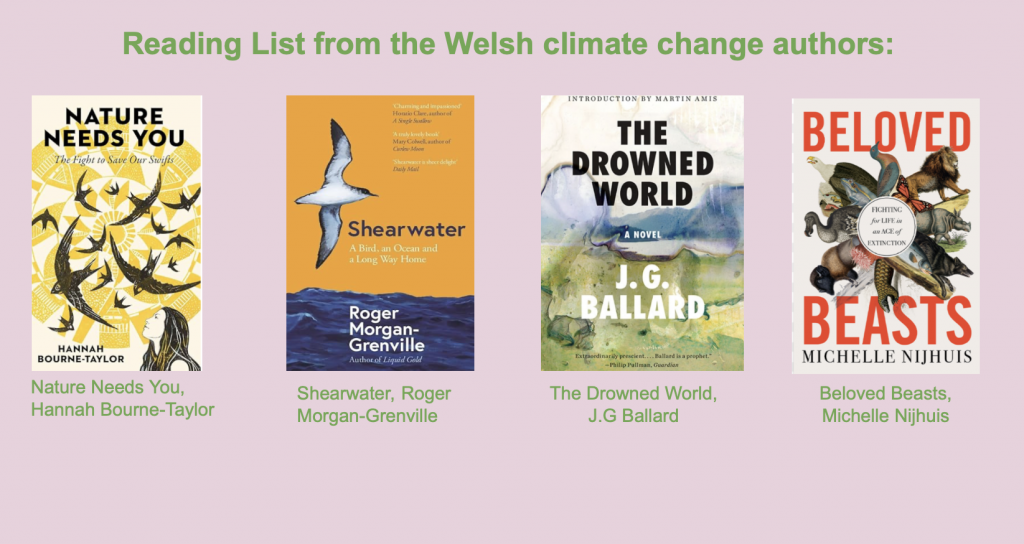
Seeds of ancient myth
Another writer who has spoken about her personal relationship with nature, is 32-year-old Durre Shahwar. Last year, she was the Poet in Residence for the Nature and Us project, with national charity Literature Wales, encouraging people to find out more about the natural environment.
The project consisted of a number of workshops with the public. Shahwar said these sessions enabled participants from diverse backgrounds to share their experiences of environmental change, strengthening local connections and promoting climate awareness.
I often find myself asking, could our stories today become part of the mythologies of the future?
Durre Shahwar
This built upon what Shahwar termed people’s “entanglement” to the land, which describes how closely people are connected to nature. “Climate change affects us all in the same way, but how we approach it depends on our cultural beliefs,” she added.
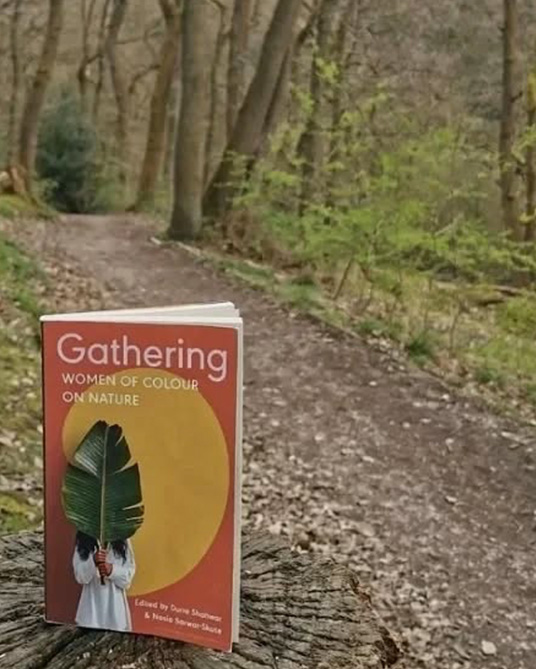
Shahwar, a Welsh-Muslim author, found comfort in connecting religious teachings to the Welsh landscape. She spoke of religious figures who were linked to the land and how they connected to parts of Welsh mythology.
One story she found particularly fascinating was the myth of the Great Atlantis, an underwater city.
It’s a story that resonates with her on many levels, not just for its mystery but for its relevance to today’s world: “I often find myself asking, could our stories today become part of the mythologies of the future?”
Gathering, pictured in nature. Image credit: Durre Shahwar
She worked alongside Edmonds on a book entitled Gathering, bringing together essays written by women of colour on their connection with nature. This book received critical acclaim, with Nation Cymru calling it: “An unapologetic and important book.”
Tides of tomorrow
All three authors spoke about storytelling as a way to present the challenges of the climate crisis. They noted that it was important to balance storytelling with activism. Shahwar said this combination reveals the emotional impact and creates a practical goal for readers. “Activism should always be combined with storytelling,” she said.
Gower agreed with this, he added: “Every book is sort of a work of activism, and the activism may not be dramatic, sometimes it’s just about going to a nature reserve, seeing some birds and reminding yourself they still exist.”
Speaking about the message behind his book, he said he hopes to raise awareness about the personal impact of Britain’s diminishing bird life. He added: “The book is directly raising awareness about conservation by saying have a look at this beautiful thing.”
